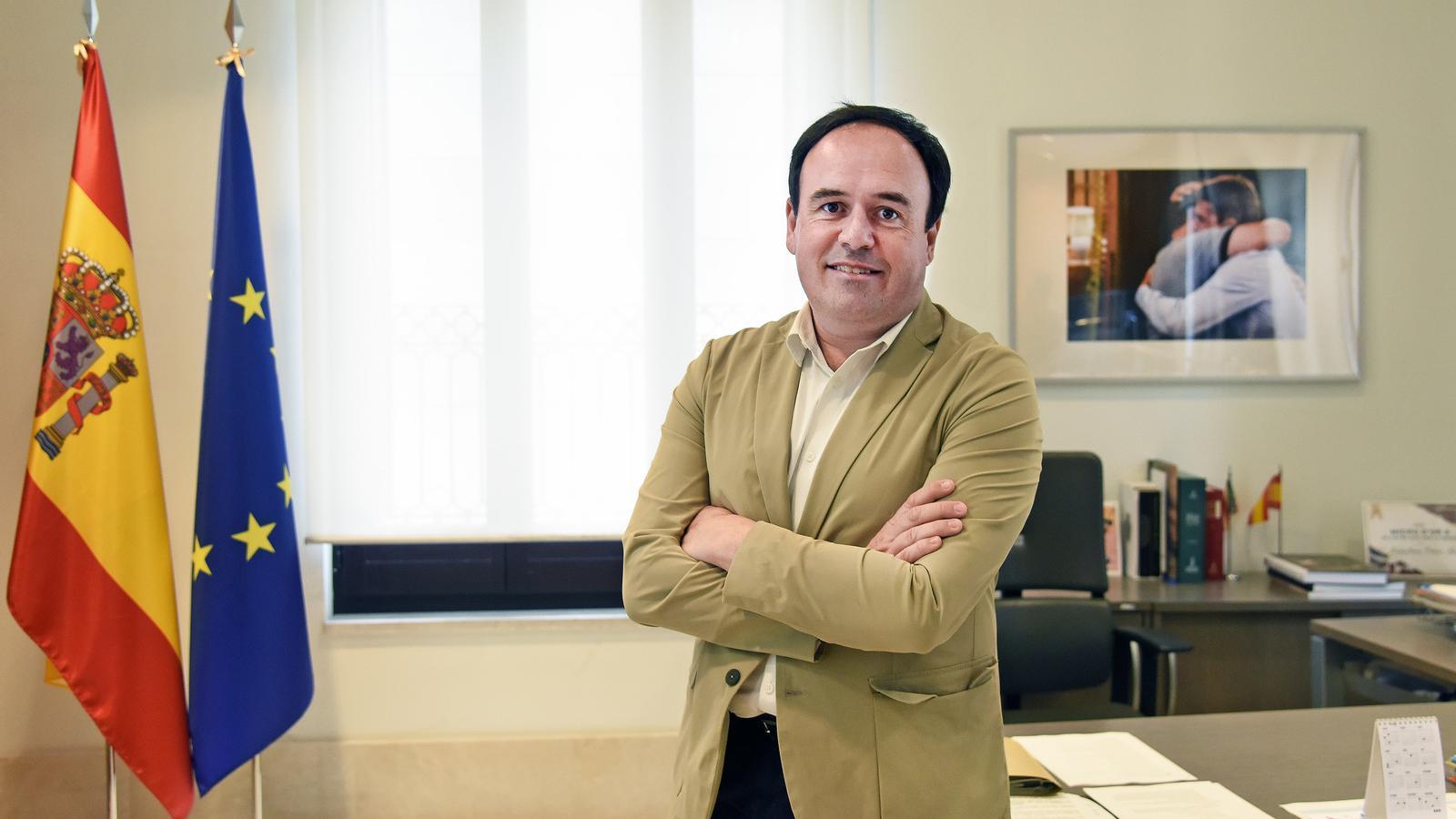El secretari general del PP valencià: "President Mazón will not resign"
Juanfran Pérez Llorca

ValenciaWe spoke with Juanfran Pérez Llorca (1976, Finestrat), one of Valencian President Carlos Mazón's most trusted figures, hours before a key day in the DANA investigation. Pérez Llorca reiterates that the Generalitat (Catalan government) did everything in its power with the information and resources at its disposal. Regarding Mazón's future, he is clear: the Alicante native will not resign.
This Friday, former minister Salomé Pradas and former regional secretary Emilio Argüeso will testify. Have you spoken?
— I keep in touch. I have a certain personal relationship with both of them. But I haven't discussed the matter. I've seen them in good spirits and eager to explain themselves.
Why didn't President Mazón cancel his agenda on the 29th when flooding was already occurring in Utiel and Requena at 2 p.m.?
— The Council was where it should have been. It was informed as much as possible by those in charge. At that time, no one was aware of the catastrophe that was about to occur. If the president had had the information about the Poio ravine that the Hydrographic Confederation never provided, [The agency acknowledged that it did not send alert emails for two hours, but details that the information could be consulted at any time.], I am convinced that he would have been in the Cecopio.
It's hard to understand why the president didn't address the emergency much earlier.
— I disagree. The government was where it belonged. In a government, everyone has their roles.
Based on the information available on the 29th, shouldn't the Cecopio have already been operating at 9 a.m.?
— With all the information we have today, I understand why one might conclude that the call was made late, but the issue was the information available at the time. In fact, only two of the 57 affected municipalities activated their emergency committees. Why was this such a serious problem for the Valencian Community? Why were the top officials of the ministries responsible for Civil Protection outside Spain and didn't cancel their trips?
If the judge tells us that the jurisdiction was the Generalitat's, why do we always get answers about what the State did when we ask questions?
— If any administration has stepped up to the plate, it's the Generalitat Valenciana, no one else. We're referring to one of the greatest tragedies this country, Spain, has ever suffered, and no one understands how, in the face of a catastrophe of this magnitude, the country's government can simply wipe out responsibility and pass all responsibility to an autonomous community that lacks the financial resources or the number of professionals that a state has.
If the disaster has not been handled well, as it appears to have been, wouldn't it be democratically healthy for the person in charge to resign and send a message that responsibility is being accepted?
— The best message anyone can send is for a politician to say that his future is tied to reconstruction. We can compare this to the Spanish government, which promoted Minister Teresa Ribera or Government Delegate Pilar Bernabé, despite their political responsibility for what happened.
Isn't making a pact with Vox and attacking the European Green Deal, which fights climate change and fuels phenomena like the DANA, a mistake?
— The misinterpretation of the Green Deal has led to victims in the DANA. It has prevented such fundamental projects as channeling the Poio and Saleta ravines.
The use of Valencian is declining, and they insist on placing it on an equal footing with Castilian, when the reality of the two languages is very different.
— In the areas of education and language, a broad agreement among all political parties would be desirable, but when this is not achieved, problems begin to arise.
Why don't they eliminate the exemption from teaching Valencian in certain regions? If they take this step, the PSPV will join in, and Compromís, needless to say, will do.
— Agreements are reached through dialogue, but we say, you have the right to an exemption; if you teach classes in Valencian, you have the possibility of an academic qualification that wasn't previously granted. We're promoting this as an incentive.
Former President Francisco Camps He keeps offering to lead the partyIs it a real option?
— President Mazón will not resign, and therefore there is no option.
Will you run for re-election?
— It's a question that should be asked of him. I don't know today.
